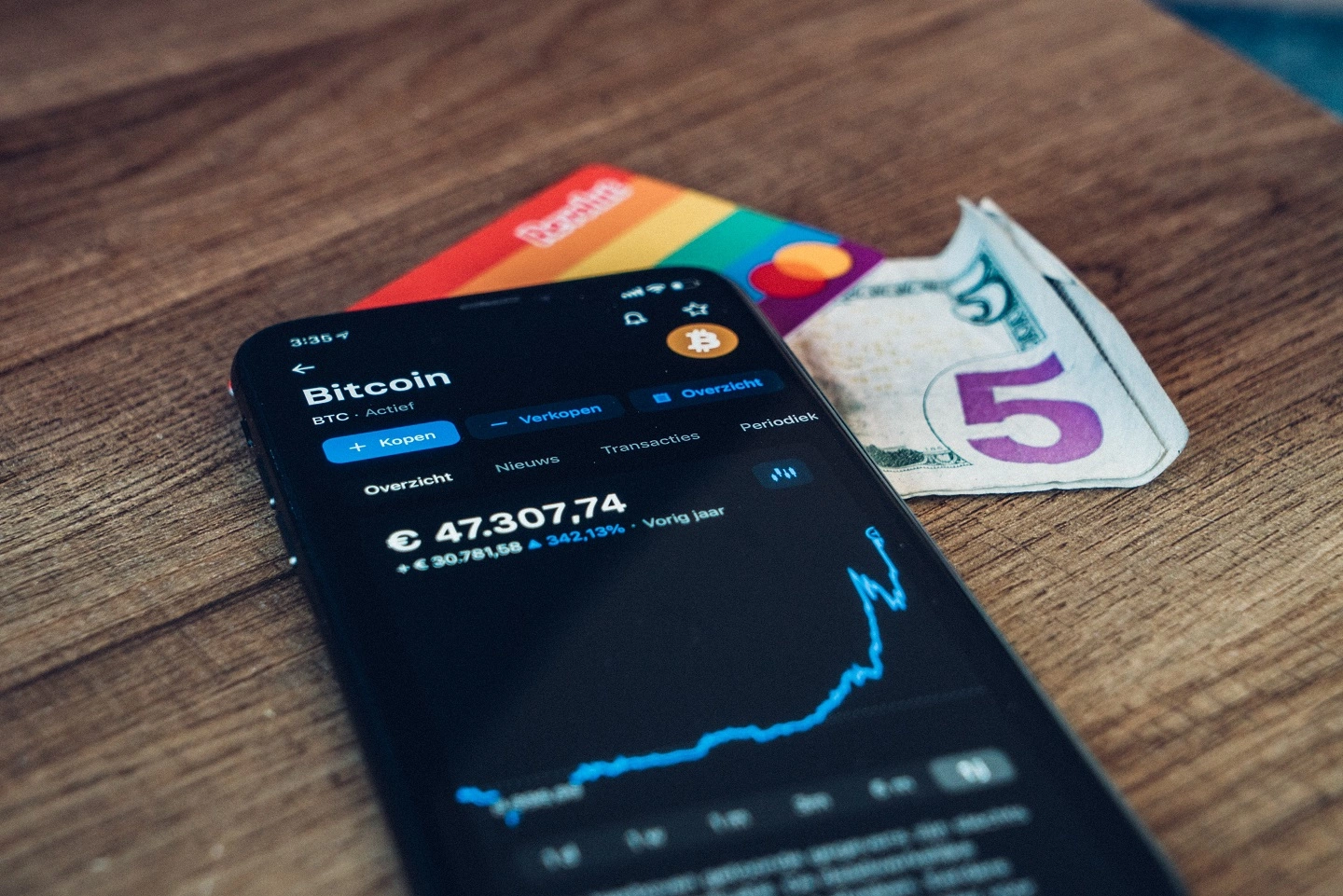- February 21, 2022 6:00 am
- by Aruthra
- February 21, 2022 6:00 am
- by Aruthra

Bitcoin is a type of digital currency that can be used electronically for financial transactions. You can conveniently send and receive bitcoins using a Bitcoin wallet app. Bitcoins are stored in a digital wallet in the same way that cash or cards are kept in a physical wallet.
We can store bitcoins through Bitcoin wallet apps, which are well-known for being secure, private, and confidential. Bitcoin is transferred between users through a peer-to-peer network, and each transaction is recorded in the blockchain.
Blockchain is a decentralised system and there are no central figures of authority such as a bank or government managing the amount of Bitcoin in circulation.
Bitcoin payments are particularly appealing and beneficial for businesses. Below are some of the reasons:
Bitcoin payments are irreversible and secure, so businesses should no longer be concerned about fraud, as well as the withdrawal of a cheque.
Sending bitcoins to another country is a simple process. There are no intermediary banks so you do not have to wait almost three working days for the transaction to complete. There are also no limits on the amount you can transfer.
Obviously, the security of your bitcoin wallet and billing requirements should be taken into consideration. However, unlike when dealing with traditional credit cards, you will not be required to process your clients' personal information.
Bitcoin also has a multi-signature option, which necessitates the approval of payment by several members from the same group. It would be useful if you need to coordinate multiple actions.
You may provide the utmost level of transparency by using Bitcoin.
When someone sends Bitcoin from their own wallet address to another, they are transferring ownership of the coins to the recipient's wallet address. The transaction is recorded on the Bitcoin Blockchain, and the balances of the Bitcoin wallets are updated.
This transaction is based on asymmetric key cryptography that uses two kinds of keys - the private key and the public key. You have to login into the bitcoin wallet app to perform the transaction.
Following are the commonly used bitcoin wallet types;
Desktop wallets can be downloaded and installed on a computer or laptop. They can only be accessed by using a gadget. However, if your computer is infected with a virus, is hacked, or suffers external damage, you risk losing all of your funds.
A web wallet is a virtual resource that utilizes a private key for connecting to any location with the help of an internet connection. It would be beneficial if you were away from your computer and needed access to your Bitcoin account right away.
Mobile wallets are apps that can run on a mobile device. These wallets are quite useful because they can be used to make payments even in offline stores. The main issue with mobile wallets is that you risk losing your funds if you lose your phone or it is damaged.
Hardware wallets are specialized devices like USB drives that can be used to store private keys. These wallets are useful since they allow you to do transactions smoothly. You may just connect them to the internet and authorise yourself to make the payment. This is why, despite their high cost, hardware wallets remain the best and safest Bitcoin wallet solutions.
These are printed documents that contain public and private keys you've generated. When compared to other wallets, paper wallets are the safest bitcoin wallets. You can conveniently send money to the wallet's public address, and you can easily withdraw Bitcoin by providing private keys or scanning the QR code on the paper wallet. The primary downside is that you won't be able to retrieve your funds if you lose your wallet.
Get expert mobile app developers to assist in your project. Hire developers part-time/ full-time from Vofox Solutions.
Hire Mobile App DevelopersObviously, any cryptocurrency wallet software should give users the option to authorise. Therefore, the sign-up and login feature is mandatory.
The details of the bitcoins will be visible on this page.
To receive and send money with ease.
Creating a password and pin code for app security.
It implies that you should develop a multi-cryptocurrency wallet software.
This function is aimed to support you in selling or purchasing bitcoins. It keeps you up-to-date on the subject so you always know who is selling this cryptocurrency and can work as a seller.
All of the finest bitcoin wallet apps allow users to keep track of their payment transactions in real-time.
This feature allows users to receive information about transactions, fluctuation in Bitcoin market price, etc.
Bitcoin price can be easily tracked.
Developing a bitcoin wallet app from the scratch requires relevant programming skills, and the developers need to address the following:
For this project, we suggest that the development team set up a full node of the Bitcoin blockchain. The other approaches that can be used are full SPV node, pruned node, or SPV node.
To install a full node, developers can use Bitcoin Core‘s RPC, i.e. ‘remote procedure call’ for which we suggest using NBitcoin. Developers should fully synchronize the node at first and then use RPC commands to perform the remaining actions.
Developers should do Initial Blockchain Downloading (IBD) and then start the program that implements the Bitcoin protocol for RPC calls. To build a bitcoin wallet app, choose the appropriate cloud platform like AWS Elastic Beanstalk (which is “Platform-as-a-Service”), or AWS Amplify (which is “Mobile-Backend-as-a-Service”).
If you want to build a web application, choose AngularJS, HTML5 and CSS3 for developing the front-end, and use NodeJS to develop the back-end. You can select AWS to set up the server.
For Android, you can use Java to develop the front-end and provide API services by utilizing dot NET/Node JS/Python.
For iOS, you can select Objective C/Swift to develop the frontend and backend and provide API services by utilizing dot NET/Node JS/Python.
To build your app, you can leverage the public libraries that are available online. These libraries will synchronize your app with the blockchain and implement standard functionalities on your app. Chain-Java and BitcoinJ are two excellent examples of public libraries.
BitcoinJ is a Bitcoin library that can be used to interact with both Windows and Android platforms. BitcoinJ SDK will offer Bitcoin developers a standard set of tools for sending and receiving Bitcoin, as well as checking the current balance. It is also beneficial for implementing encryption.
Coinbase SDK is a Java library that can be leveraged to develop a bitcoin wallet app for Android and iOS. Official libraries for Java, Python and other programming languages are available.
Programmers will have a full stack of APIs with Blockchain.Info. APIs (Application Program Interfaces) will help you to synchronise crypto wallets with the blockchain ecosystem.
You can encrypt the wallet using a strong password, making it difficult to hack a PC or mobile device. Though, this may not offer 100 per cent protection.
Another technique to safeguard your mobile or online cryptocurrency wallet is to generate its backup in many locations.
Users can use two-factor authorization to add their phone numbers and email addresses to receive authentication notifications anytime their wallet is used. This way, they'll know whether someone has attempted to log into their account without their permission or not.
There's no need to create your own bitcoin wallet app if your company doesn't require a complex multipurpose solution. In this instance, you can make Bitcoin payments using one of the ready-made services available. You just need to integrate payment technologies like BitPay, Coinbase, etc. into your application.
As the popularity of Bitcoins is increasing, the demand for Bitcoin wallet apps is rising. Make sure to develop a Bitcoin wallet app with the right security features implemented.
Guaranteed Response within One Business Day!
What is Infrastructure as Code (IaC)?

Front-End Performance in 2026: What Core Web Vitals Actually Mean for Your Site

What is FinOps?

Micro-Frontends: Breaking Down Monolithic React Applications
.png)
Zero-Trust Security Models for SaaS: What You Need to Know